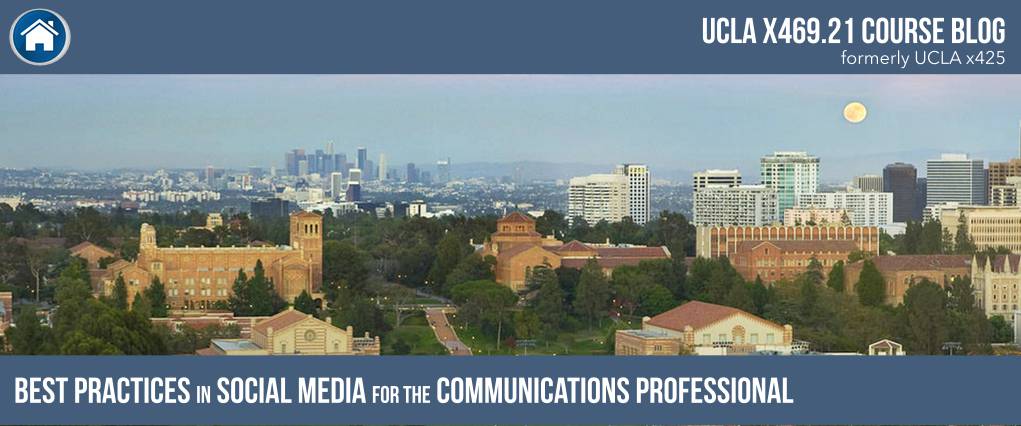
WEEK 5: A Conversation with Guest Speaker Tony Adam by Alex Levin
“Don’t hate the player, hate the game.”
This is a critically important phrase to bear in mind for anyone who has ever used Google and entered endless variations of a search term like “Best Pizza Los Angeles” – only to find that “Dominos” is consistently among the top returned answers.
Web-savvy organizations are taking advantage of the way Google scours the internet and returns results in order to ensure their brands are far and away the most likely to be seen by interested internet inquisitors.
Fortunately for pizza enthusiasts, the above situation is purely hypothetical – unless, of course, Dominos decides to hire Visible Factors President and CEO Tony Adam, a search engine optimization (SEO) expert who also happened to be the latest guest speaker at “Best Practices in Social Media for the Communications Professional.”
The SEO (Search Engine Oblivious) students of UCLA x469.21 had the pleasure of listening to Tony speak not only about his career, but also about the complexities of SEO and how best to bend the rules of the game to one’s own advantage.
Critically important for being the most searchable website among a virtual sea of competitors is to include popular keywords and phrases – relevant to the topic of your website, of course – within not only your site’s URL, but also its description hidden within the HTML. A page with the URL www.FakeURL.com/xjeh537shgh3 will be considerably less search engine optimized than one with the URL www.FakeURL.com/SeriouslyDontClickThis for searches about clicking. The same principle applies to a website’s title and description, which, respectively, are the blue link and subsequent text that appear in a Google search.
Tony mentioned other website factors that play into SEO: history, or age of the site; news relevance; and heading levels (H1, H2, etc.), for example. While important, these factors are significantly smaller players in the SEO game than URL, page title, and description… at least for now.
Google seems to be updating its algorithms on a fairly regular basis to counter the trickery and level the playing field. Not only do they change the rules unannounced, but they also keep the rules under heavy guard; it’s up to the players to figure them out and try to break them.
So if that’s the case – that the game of SEO is changing only to counter the trickery of players – maybe we shouldn’t hate the game after all. Just something to think about.





